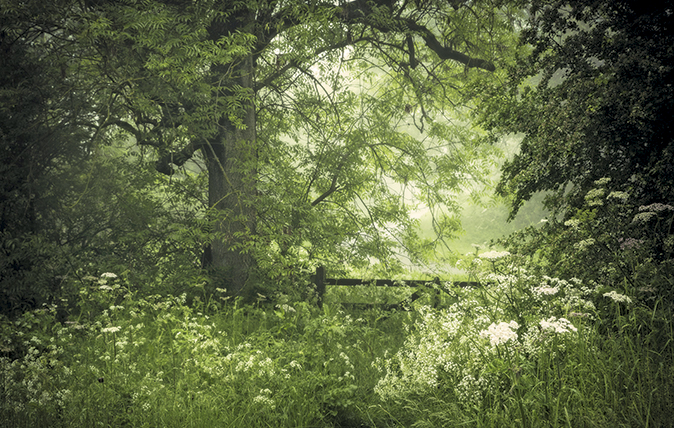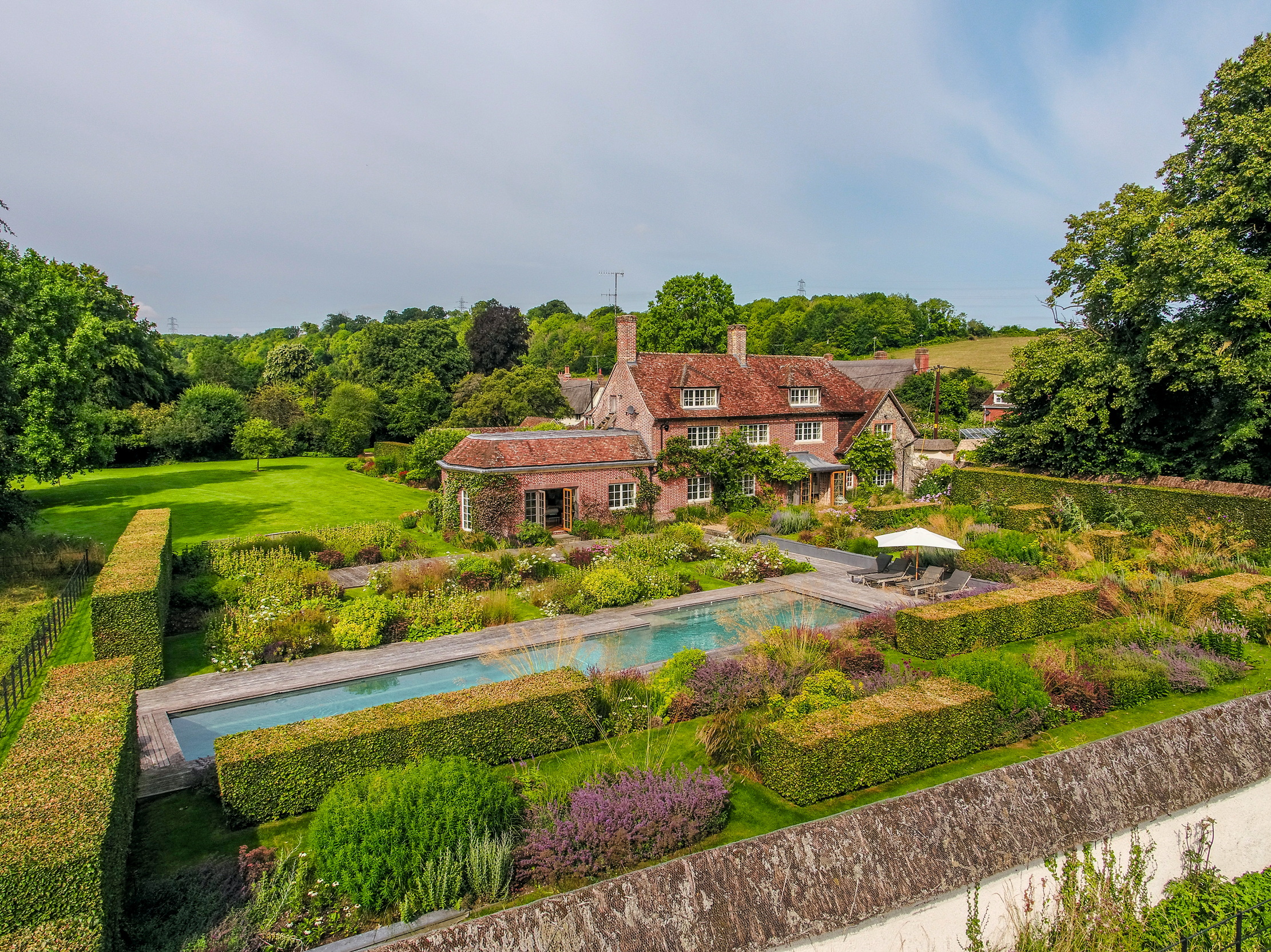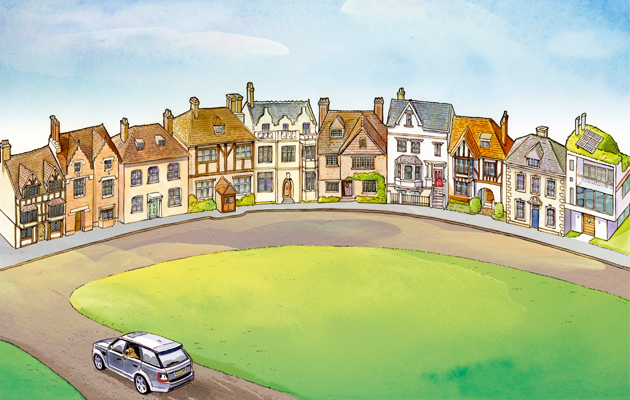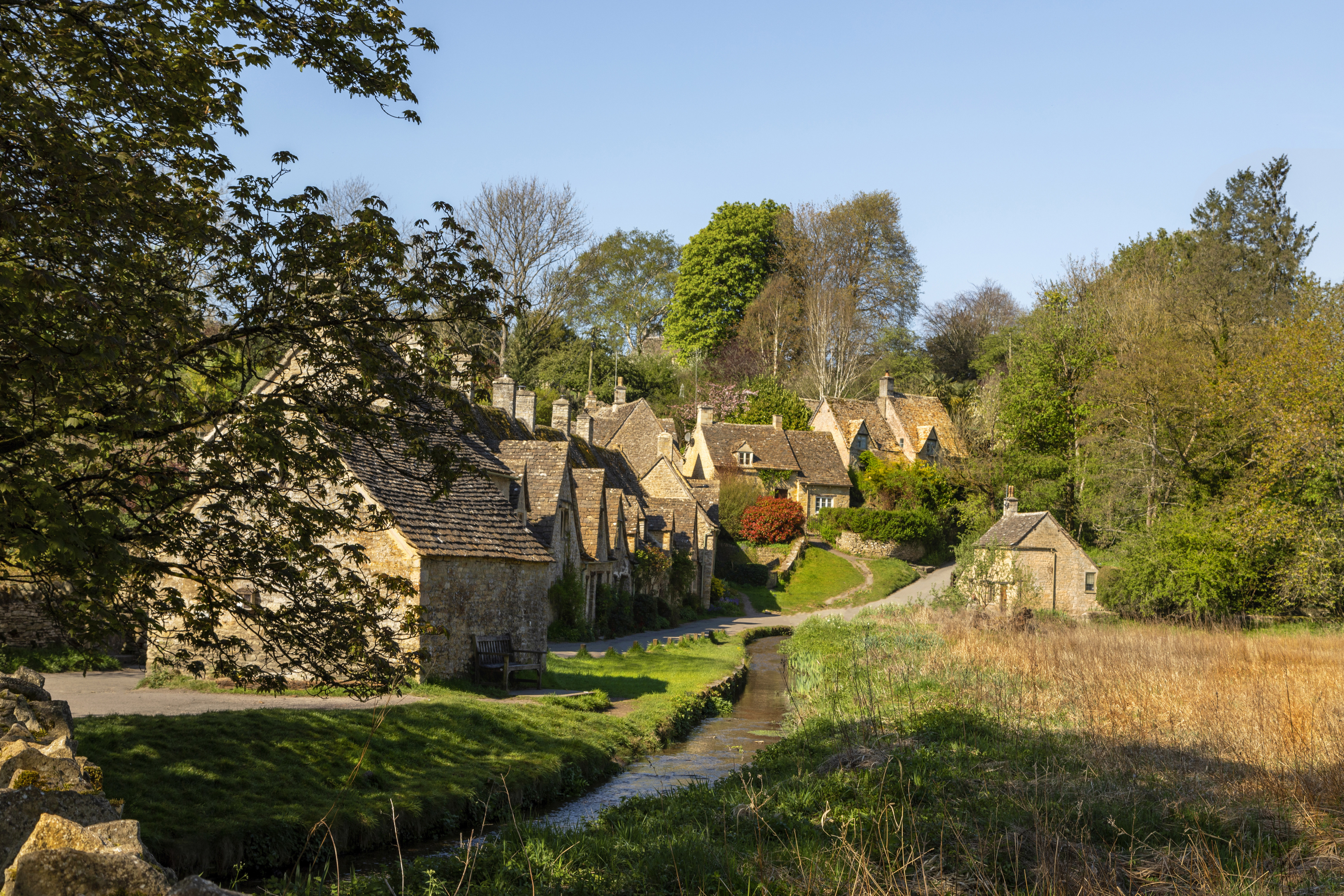Why do we all want to live in the countryside?
It's in our DNA.


Exquisite houses, the beauty of Nature, and how to get the most from your life, straight to your inbox.
You are now subscribed
Your newsletter sign-up was successful
In the beautiful churchyard of St Andrew’s, Mells, is a memorial to Prime Minister’s son Raymond Asquith, who was killed during the First World War, as well as the grave of the poet Siegfried Sassoon. Their close ties to this quiet corner of Somerset countryside tell us much about our nation.
The wars of the 20th century made people question what they were fighting for and the countryside was used as propaganda. It created feelings of patriotism and nostalgia and pulled at the heartstrings.
Many fought for a countryside they had never seen. Visit a rural parish church and you’ll find dukes, earls and aristocrats buried there. This doesn’t happen in France, for instance; the countryside there was for peasants, not noblemen, whereas our countryside is for all. It’s in the British DNA; our homes are our castles and we build our Jerusalems in this green and pleasant land.
I was once invited to the Japanese embassy. Over lunch, a senior official told me: ‘We have a big problem in Japan. We cannot get our people to live in the countryside. Everyone wants to live in Tokyo or Osaka. What does your government do to make people move out of towns?’
I explained that it was the opposite in the UK, where people aspire to live in the countryside. A move to the provinces is seen as a mark of success. This desire for rural life is a defining part of our nation, but doesn’t happen in France or Italy. Indeed, the only people who yearn to live in the French countryside are the British.
Why do we have such a different relationship with our rural landscape? When Country Life did a survey with a well-known pollster, we asked ‘if you could, would you like to live in the countryside?’. More than 60% said yes, although only 14% actually do.
Britain has more varied geology than any other country of comparable size. Ancient tectonic plates sculpted this island into the most beautiful, varied landscape in the world. The rocks beneath define the land: the chalk downs in Hampshire and Sussex are as different from the granite of the West Country as the ancient volcanoes of the Grampians are from the limestone of the Peak District. If you drive 100 miles across Britain, the landscape will thrillingly and constantly change.
Exquisite houses, the beauty of Nature, and how to get the most from your life, straight to your inbox.
Beneath these beautiful hills and dales, there once lay great seams of coal that drove and powered the Industrial Revolution. It couldn’t have happened without it, but the vast furnaces and mills elicited a reaction against the smoke and grime.
Movements such as the Picturesque and Arts-and-Crafts sprang up. Wilderness, once regarded as wasteland, became popular. The Lake District, which recently became the UK’s first national park to be awarded UNESCO World Heritage status, finally had something to offer.
Our literature is locally distinctive – our greatest writers are of a place. Think of Hardy, Austen, the Brontës or Wordsworth, and you think of a particular part of the country.
Royalty also played its part. Victoria and Albert led the way by buying Balmoral and Sandringham. Getting out of London became fashionable. Add the invention of the car and the extensive rail network and an escape from the blackened cities to the gardens of Eden became ever more possible. It was at this point, 120 years ago, that Country Life was launched. It has thrived ever since and sells more copies than it did a decade ago.
Interest in the countryside is now at an all-time high. Fewer people than ever work the land, but millions more are beguiled by it. The BBC’s Countryfile vies with EastEnders as the most watched programme on television; the National Trust is the second-biggest membership organisation in Britain with 4.5 million people. Walking is the single most popular pastime in Britain. Our countryside is a new religion.
However, these masses want a different sort of countryside to the one that we now have and decisions made over the next few years will define what it will mean to call yourself a Briton in the future.
I believe that there will be a new democratisation of the landscape, thanks to its popularity and the fallout of Brexit. Any subsidies paid to farmers after 2020 will come with increasing strings attached; there will be calls for more access, more accountable environmental schemes and less intensive farming. Then the question will be, who really owns the land?
The lure of working in cities will diminish, with ever-higher rents and longer and more tiresome commutes prompting more of us to work from home. As super-fast broadband is eventually rolled out, village life will undergo a renaissance, these settlements transformed from dormitories to workplaces. Many of us will move back to the countryside, the place we really want to be. Our DNA is calling.

Credit: Strutt and Parker
Best country houses for sale this week
An irresistible West Country cottage and a magnificent Cumbrian country house make our pick of the finest country houses for

Credit: Illustrations by Fred van Deelen
Top 10 village house styles
How much is that beautiful classic doll’s-house facade really worth? Arabella Youens asks the experts to rank the top 10

The Country Life guide to the Cotswolds: Where to go, what to see, where to stay and what to eat
Straddling five counties, the Cotswolds is arguably England's most famous region outside of London. Here’s our guide to what to
Mark grew up in the Cotswolds and began his career as a gold prospector. He became editor-in-chief of Country Life in 2006, having previously been in charge of more than 50 magazines, including Horse & Hound. He attributes his success to David Bowie and fly-fishing.
